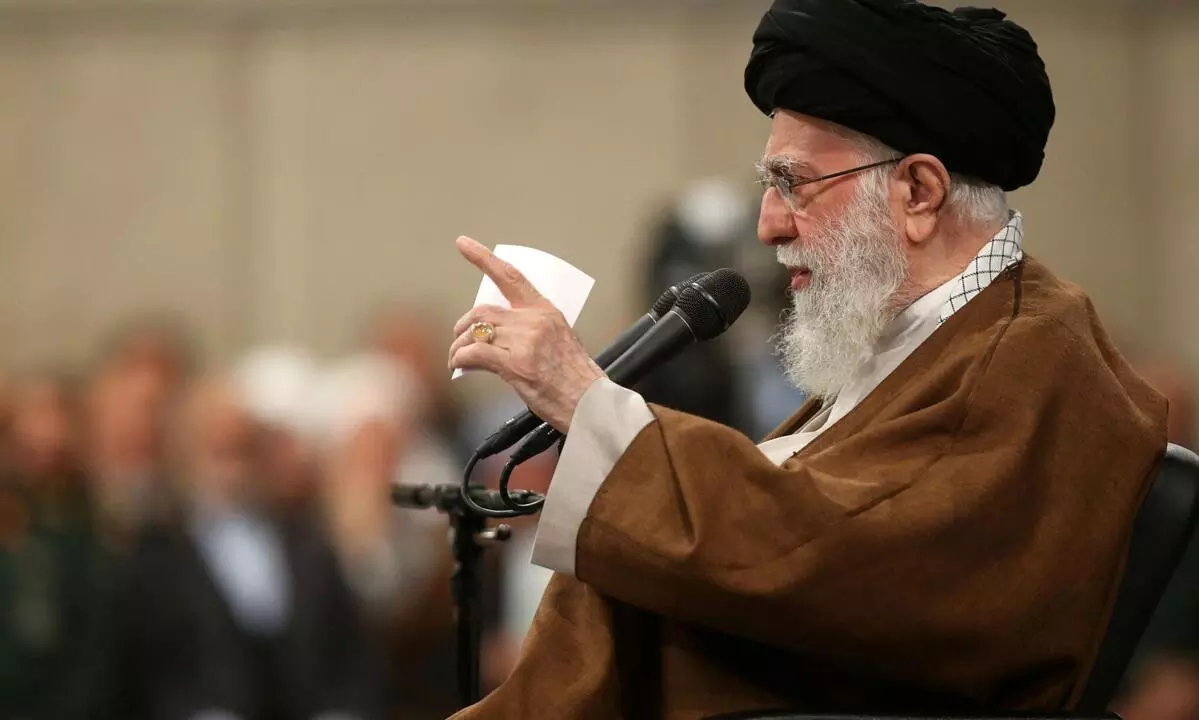
Trump says undecided on Iran attack, Khamenei warns US of reciprocal strike
text_fieldsAmid speculation about the US joining Israel’s war against Iran, President Donald Trump is reportedly uncertain about a possible intervention, as leaders from his own party urge him not to drag the US into the conflict, while anti-war protests grow across the country.
Although Trump has yet to make a final decision on entering the conflict, his public remarks suggest a growing willingness to support Israel, despite his longstanding caution over foreign military entanglements.
Iran’s supreme leader, Ayatollah Ali Khamenei, warned that the US would face irreparable damage if it deployed its military to attack, stating in a message read out on state TV that such consequences would undoubtedly accompany any American intervention, The Guardian reported.
The Israeli air campaign, which began with a massive sortie last Friday, is believed to have been launched with at least tacit approval from Washington, although the US president reportedly hoped for more time to allow a sixth round of negotiations with Tehran to take place.
Israeli officials claim the attack was timed to coincide with the end of a 60-day ultimatum issued by Trump in a letter to Iran’s Supreme Leader, demanding significant constraints on the country’s nuclear programme. The original plan, dubbed Operation Rising Lion, was allegedly postponed to give diplomacy a final chance, but the deadline lapsed without a breakthrough.
In response, Iran has prepared to retaliate against both US and Israeli targets, with intelligence reports indicating that missile systems and other strike assets are being readied to hit American bases across the region should Washington join the conflict. The Iranian leadership has publicly warned that any US military involvement would bring irreparable damage.
Amid this backdrop, European powers have moved quickly to revive diplomacy, with the foreign ministers of the UK, France, and Germany planning a meeting in Geneva with Iran’s Deputy Foreign Minister. This marks the first in-person diplomatic engagement since Israel’s assault began, although Iran has refused to engage with US envoys, citing American complicity in Israeli actions. The talks aim to explore whether Iran is open to limiting its nuclear programme in exchange for de-escalation and renewed international engagement.
Despite these efforts, Trump continues to entertain military options, with reports emerging that he has discussed potential airstrikes against Iran’s heavily fortified Fordow enrichment facility. US defence officials have debated whether the bunker-busting GBU-57 bomb would be sufficient, or if even that might fail against the deeply buried site, leaving open the possibility of more extreme measures.
Trump, however, remains unconvinced and appears to be using the threat of military action as leverage to bring Iran back to the negotiating table.
While European leaders have stressed the need for diplomacy and have refused to endorse the Israeli offensive, they have maintained that Israel retains the right to self-defence within international law.
The US, meanwhile, has begun moving key military assets, including mid-air refuelling tankers, into positions in Europe, enabling rapid support should a strike be ordered.












